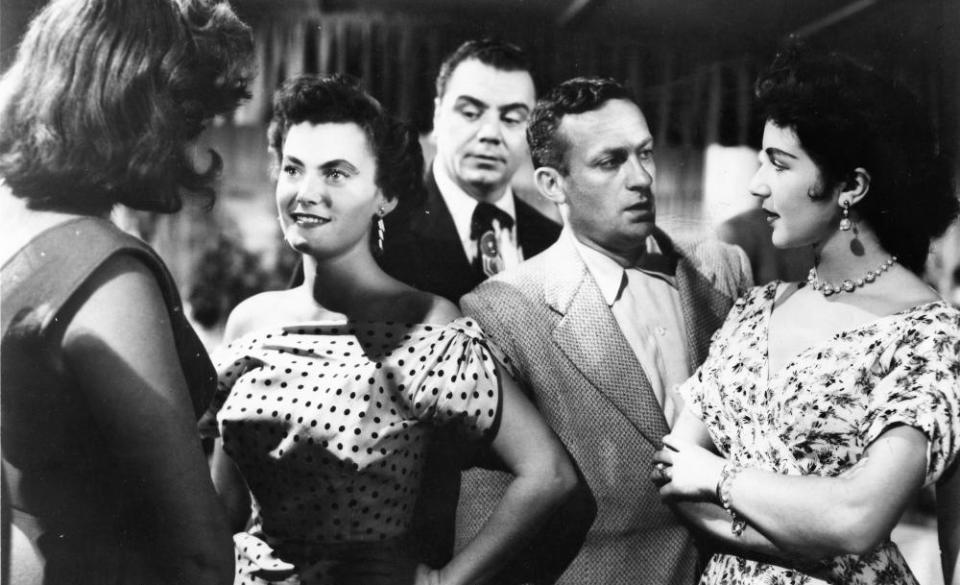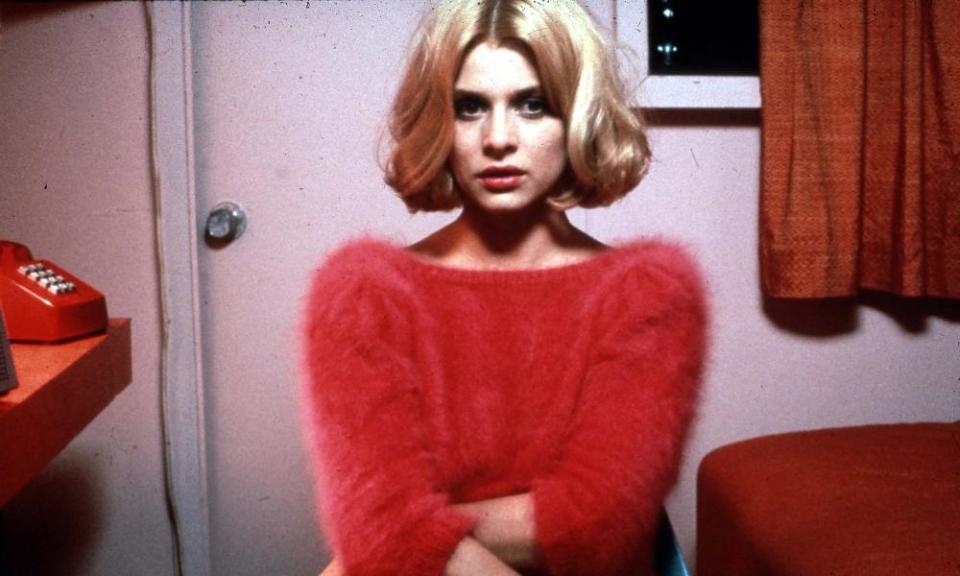Streaming: curate your own Cannes film festival
Bring out your tiniest violins: in a normal year I’d be writing this column from the balmy French Riviera, with a glass of rosé at my side, amid the annual Cannes film festival. That, of course, has all been called off. For the first time since the second world war – not counting the time things shut down halfway through amid the May ’68 movement – the festival has admitted no Cannes do.
A year without Cannes leaves the arthouse release schedule a bit disoriented: traditionally, UK distributors pick over the festival’s highlights for the next year and beyond. (At Curzon Home Cinema, for example, you can currently stream Portrait of a Lady on Fire and The Whistlers, both plucked from last year’s Cannes competition.) Through the miracle of streaming, however, you can curate your own festival of past Palmes d’Or to treasure.
Cannes’s top prize, like any film award, hasn’t always got it right – Fahrenheit 9/11 felt a dated victor in 2004 the second it was announced, while one might query why Bille August won twice and Tarkovsky not at all – but a trawl through the Palme d’Or’s history still makes for a pretty invigorating world cinema primer.
The official record has the first ever winner of Cannes’s top prize as Union Pacific (streamable on Chili), the kind of Hollywood blockbuster that would never win today, though it comes with a heavy asterisk. Cecil B DeMille’s grand-scale western, one of his freshest and liveliest epics, was awarded the prize retrospectively in 2002, to honour what was to be the inaugural 1939 festival, until war pushed it back. The first actual festival took place in 1946, where the top honour was split between 11 films, cast-iron classics Brief Encounter (Amazon) and Rome, Open City (BFI Player) among them.
A stickler for technicalities, however, would say the first Palme d’Or – under that name, as opposed to the Grand Prix du Festival – wasn’t awarded until 1955. It went to Marty (iTunes), a tender, empathetic, working-class Bronx romance that was bracing in its day for bringing TV-scale storytelling to cinemas, and has aged rather gracefully. (For years, it was the only film to win both the Palme and the best picture Oscar – until Parasite, of course, which will be available to stream next month.) In 1959, Black Orpheus (Amazon Prime) set a more exotic Palme template. Marcel Camus’s bossa nova-laden relocation of the Orpheus and Eurydice legend to the favelas of Brazil still sways with seductive, sensual energy.

European winners dominated the 1960s, with Luchino Visconti’s lavish, wholly enveloping 19th-century epic The Leopard typical of the canon minted by the festival in that era. (It’s available on iTunes in the director’s 185-minute version, with the full 205-minute whack harder to find online.) Ditto Buñuel’s severe, incendiary Viridiana (Google Play); the luxuriant, hedonist sprawl of Fellini’s La Dolce Vita (Amazon Prime); or Antonioni’s amorphous, dreamy, still mysterious Blow-Up. Here, Cannes established itself as the spiritual home of surname-only auteurs. New British cinema got a look-in too. Lindsay Anderson’s 1968 schoolboy-insurrection study If... (Amazon Prime) still feels like a youthful revolution, while in 1971, Joseph Losey’s The Go-Between (currently on Mubi) brought angular modernism to the costume drama.
New Hollywood surged back with Palme d’Or victories for the swaggering likes of Altman, Scorsese and Coppola. The latter’s ingenious paranoia puzzle The Conversation (1974) is just about to expire on the BBC iPlayer, or it’s freely available to Now TV subscribers. Asian cinema, largely left out for decades, made its presence felt in the 1980s with wins for Kagemusha (Chili), Kurosawa’s majestic oil painting of a jidaigeki epic, and The Ballad of Narayama (Amazon), Shohei Imamura’s underseen, harshly exquisite study of rural senicide.

My own favourite Palme winner remains Paris, Texas (1984; BFI Player), Wim Wenders’s bluesy, bittersweet slab of lonesome Americana. Five years later, a Wenders-led jury would herald a new indie era by bestowing the prize on Steven Soderbergh’s brisk, acidic relationship tangle sex, lies and videotape (Amazon). History was made in 1993 by Jane Campion’s luminous, feminist-tilted erotic drama The Piano (iTunes), the first female-directed film to take the Palme.
It remains the only one, as the prize’s last quarter-century has passed through such high points as Abbas Kiarostami’s minimalist but emotionally torrential The Taste of Cherry (Chili); Cristian Mungiu’s stark, path-breaking 4 Months, 3 Weeks and 2 Days (Curzon Home Cinema); and, proving that Cannes juries very occasionally have a sense of humour, Ruben Östlund’s puckish, shaggy-dog art satire The Square (Curzon again). What direction would 2020’s Spike Lee-headed jury have taken? We’ll have to wait until next year to find out.
New to streaming and DVD this week
The Truth
(Curzon Artificial Eye, 15)
Out on all media following its Curzon Home Cinema release, Hirokazu Kore-eda’s unexpected swerve into French arthouse drama is airy and amusing. You can feel the film-maker isn’t entirely in his element, though an imperious Catherine Deneuve sure is.
Rebel in the Rye
(Movie Partnership, 12)
JD Salinger famously prevented film-makers from getting their mitts on his work. One can’t imagine he’d have welcomed this diverting, well-dressed but squarely conventional biopic, coming to VOD three years after its Sundance premiere.
The Flavour of Green Tea Over Rice
(BFI, U)
The title’s irresistible and the film lives up to it. Yasujirō Ozu’s delicate, piercing 1952 marital study never found the broad critical following of his Tokyo Story, made a year later, but its rewards are rich, and this 4K restoration captures them well.
Destry Rides Again
(Sony, PG)
You couldn’t ask for more blithe, light lockdown viewing than this latest addition to the Criterion Collection: a 1939 comic western that canters along without a care, carried by the unlikely but sparky star chemistry of Marlene Dietrich and Jimmy Stewart.

 Yahoo Movies
Yahoo Movies 
